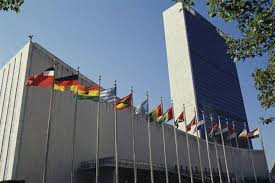International public tenders are managed by different public organizations following various types of procedures. These, in turn, are also sometimes conditioned by the amounts and type of tender (works, goods and/or services), depending on the convening organization in question.
For example, as far as the European Union is concerned, the different tenders or tenders follow the regulations that can be seen in the following table, depending on the tender amount limit and the type of acquisition in question:
Board. Type of Tender Procedure European Union
| SERVICE CONTRACTS | ≥ 300,000 EUR
International restricted tender |
< EUR 300,000, but > EUR 20,000
· – BENEF 2013 framework contract · – Negotiated procedure under competitive regime |
|
| SUPPLY CONTRACTS | ≥ 300,000 EUR
International open tender |
< 300,000 EUR, but ≥ 100,000 EUR
· – Local open tender |
< 100,000 EUR but > 20,000 EUR
· – Negotiated procedure under competitive regime |
| WORKS CONTRACTS | ≥ 5,000,000 EUR
· – International open tender · – International restricted tender |
< 5 000 EUR but ≥ 300,000 EUR
Local open tender |
< EUR 300,000, but > EUR 20,000
Competitive Negotiated Procedure |
Source: Europaid official website
Each type of bidding procedure has very defined characteristics. Below we present the most important ones:
Open procedure
In open tenders, international or local, it is understood as a procedure in which any economic agent may submit an offer.
The contract will be given maximum publicity by publishing a notice in the Official Journal of the European Union, only for open international procedures, and in the official gazettes of the ACP States, on the EuropeAid website and in any other media. of adequate communication.
All natural or legal persons wishing to submit an offer may request the tender file, in accordance with the modalities specified in the contract announcement. Once the relevant offer has been made, the offers will be examined and the eligibility and financial, economic, technical and professional capacity of the bidders will be checked to reach a selection; The offers will then be compared and the contract will be awarded.
The minimum period for submitting offers is 52 days from the date of publication of the contract notice. If a prior information notice has been published, this period can be shortened to 36 days.
Restricted procedure
In restricted tenders, all economic agents may request participation, but only candidates who meet the selection criteria may submit an offer.
The selection criteria and the tasks to be carried out will be described in the published contract notice. It will go from a general list, which will include all the candidates who have responded to the advertisement, to a preselection of the best candidates, based on the responses received. In this pre-selection phase, before the list is approved by the Evaluation Committee, the Contracting Body will verify that none of the candidates or their partners are in a situation of exclusion in the Exclusion and Early Detection System.
Maximum publicity will be given to the contract by publishing an announcement in the Official Journal of the European Union (S series), in the official gazettes of all ACP States (for EDF programmes), on the EuropeAid website and in any other appropriate media.
The Contracting Authority prepares the pre-selection notice using the appropriate template and sends it in due time in electronic format to the European Commission for publication on the EuropeAid website, and also sends the specifications to the short-listed candidates.
The deadline to request participation is 37 days from the publication of the contract announcement. The contracting authority then selects at least 5 candidates with the required capacity, who have a period of 40 days from the date of sending the invitation to submit a bid. This period can be shortened to 36 days if a prior information notice has been published.
There is the possibility that in urgent cases the public authorities may set a period of 15 days to receive requests for participation (if electronically, it can be shortened to 10 days) and 10 days for the presentation of offers.

Competitive Negotiated Procedure
In the competitively negotiated procedure, the Contracting Authority will invite the candidates of its choice to present their offers. The Contracting Authority will select, among the technically compliant bidders, the one that presents the most economically advantageous offer. The evaluation (including recourse to an Evaluation Committee) and the award of the contract will follow the rules of the restricted procedure.
In the negotiated procedure, the public authorities invite a minimum of 3 companies with which the conditions of the contract are negotiated.
Most contracting authorities can only use this procedure in a limited number of cases (for example, for supplies intended exclusively for research or testing). Contracting entities in sectors such as water, energy, transport or postal services can use it as a normal procedure.
The deadline for receiving applications for participation is 37 days from the publication of the contract announcement. In cases of extreme urgency, the period can be shortened to 15 days (or 10 days if the announcement is sent electronically).
In certain circumstances, this procedure may be chosen without the publication of a contract notice (for example, when no offers have been submitted in an open or restricted procedure, in cases of compelling urgency or when, for technical reasons, the contract can only be executed by a single company).
Competitive dialogue
In the case of particularly complex contracts, if the Contracting Authority considers that neither the direct use of the open procedure nor the provisions governing the restricted procedure will allow the contract to be awarded to the offer with the best quality-price ratio, it may resort to competitive dialogue. contemplated in the EU Financial Regulation.
A contract will be considered "especially complex" if the Contracting Authority is not objectively capable of specifying the technical means to satisfy its needs or objectives or of specifying the legal or financial structure of the project. No specific limit will apply. Due to its exceptional nature, this procedure should be used with caution.
Contracting bodies must publish a contract notice setting out their needs and the corresponding requirements. They must engage in dialogue with candidates who meet the selection criteria set out in the advertisement. The dialogue may cover all aspects of the offer; However, it will be carried out separately with each candidate, depending on the solutions and ideas that have been proposed. The Contracting Authority must guarantee equal treatment of bidders and maintain the confidentiality of offers.
The minimum number of candidates invited to bid will be three. Before selecting the candidates, the Contracting Body will verify that none of them or their partners are in a situation of exclusion in the Exclusion and Early Detection System. If less than three candidates meet the selection criteria, the Contracting Body may continue the procedure with the candidate or two candidates who meet them. The Contracting Body will not be able to complete the number with other economic agents who have not participated in the procedure or with candidates who do not meet the selection criteria.



